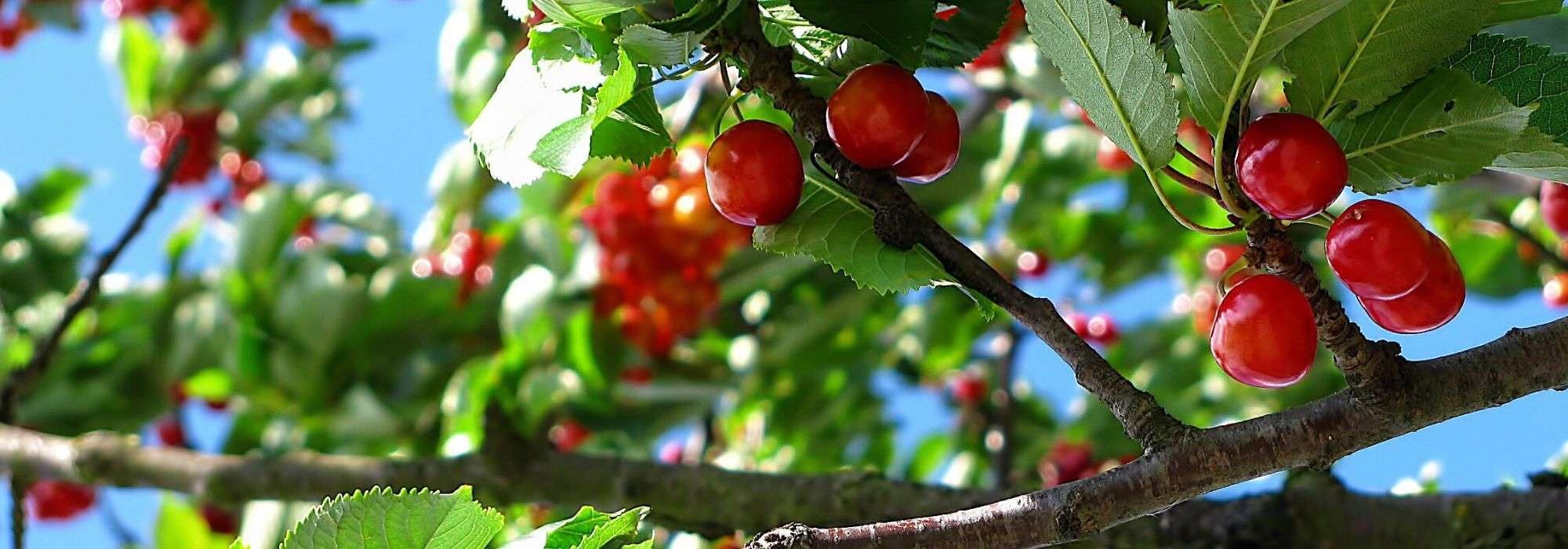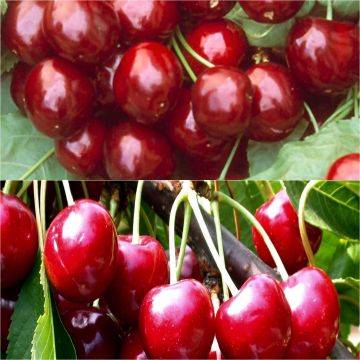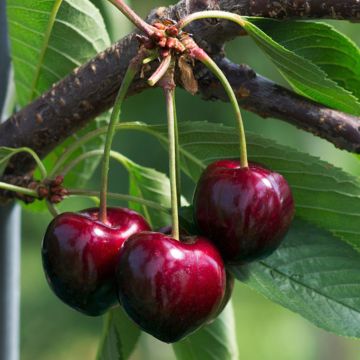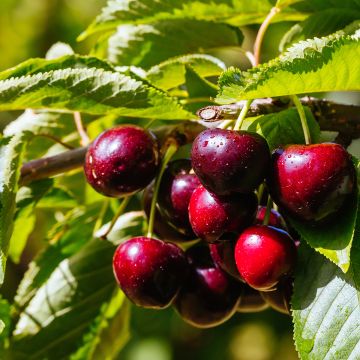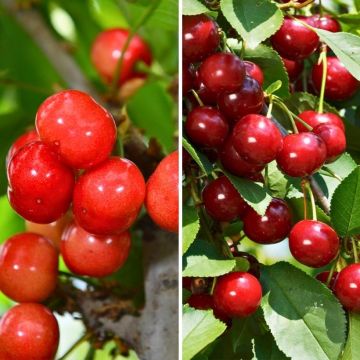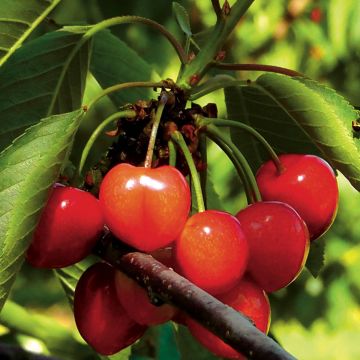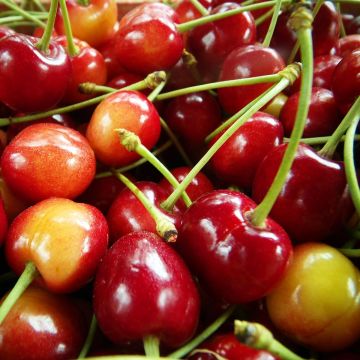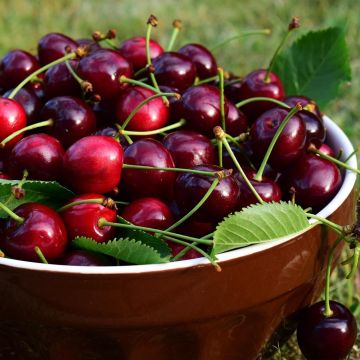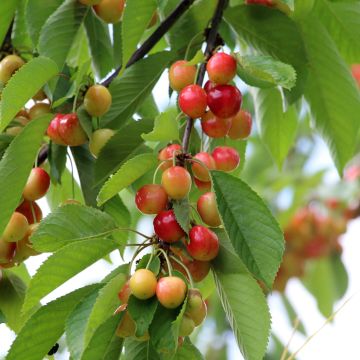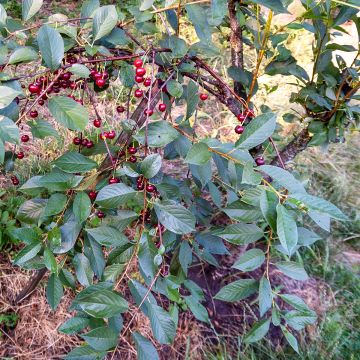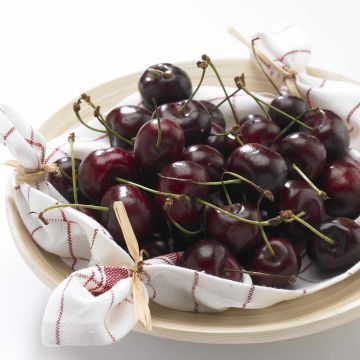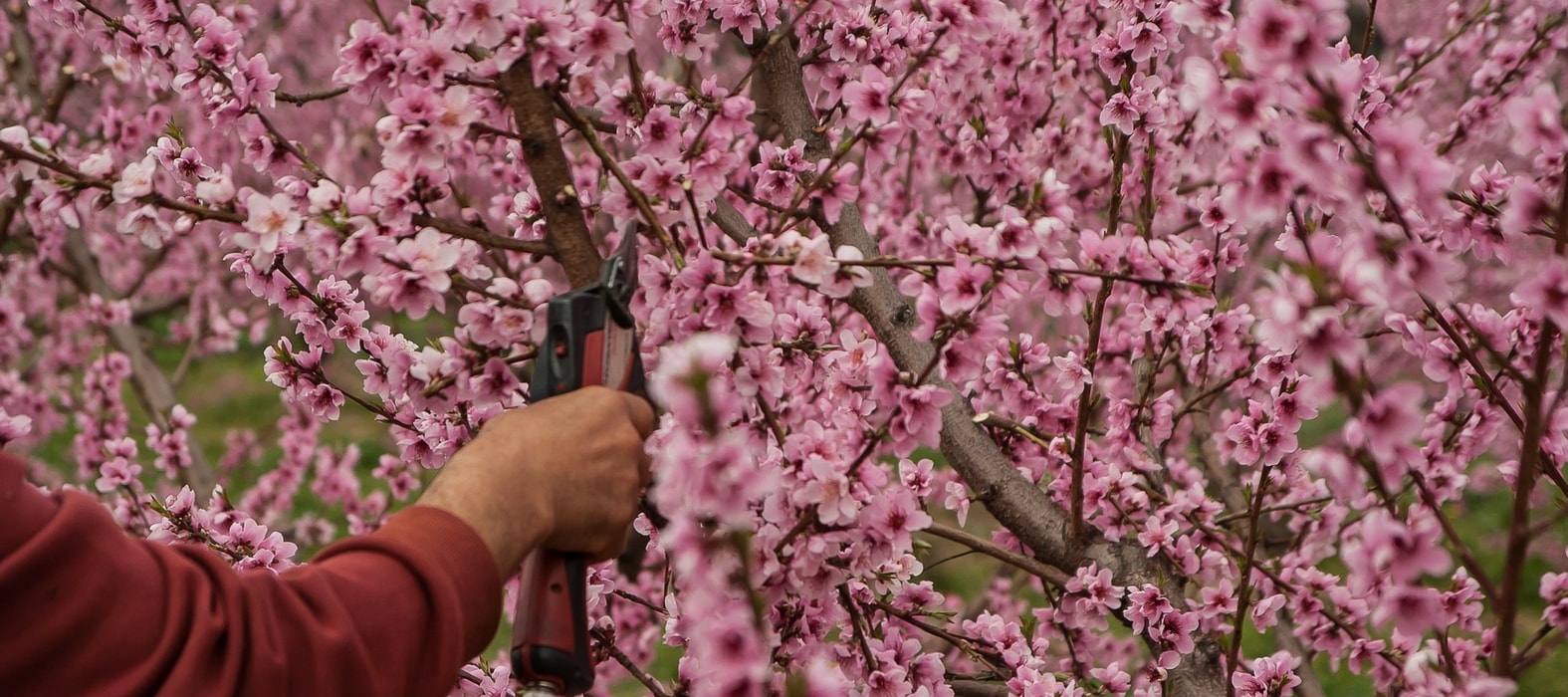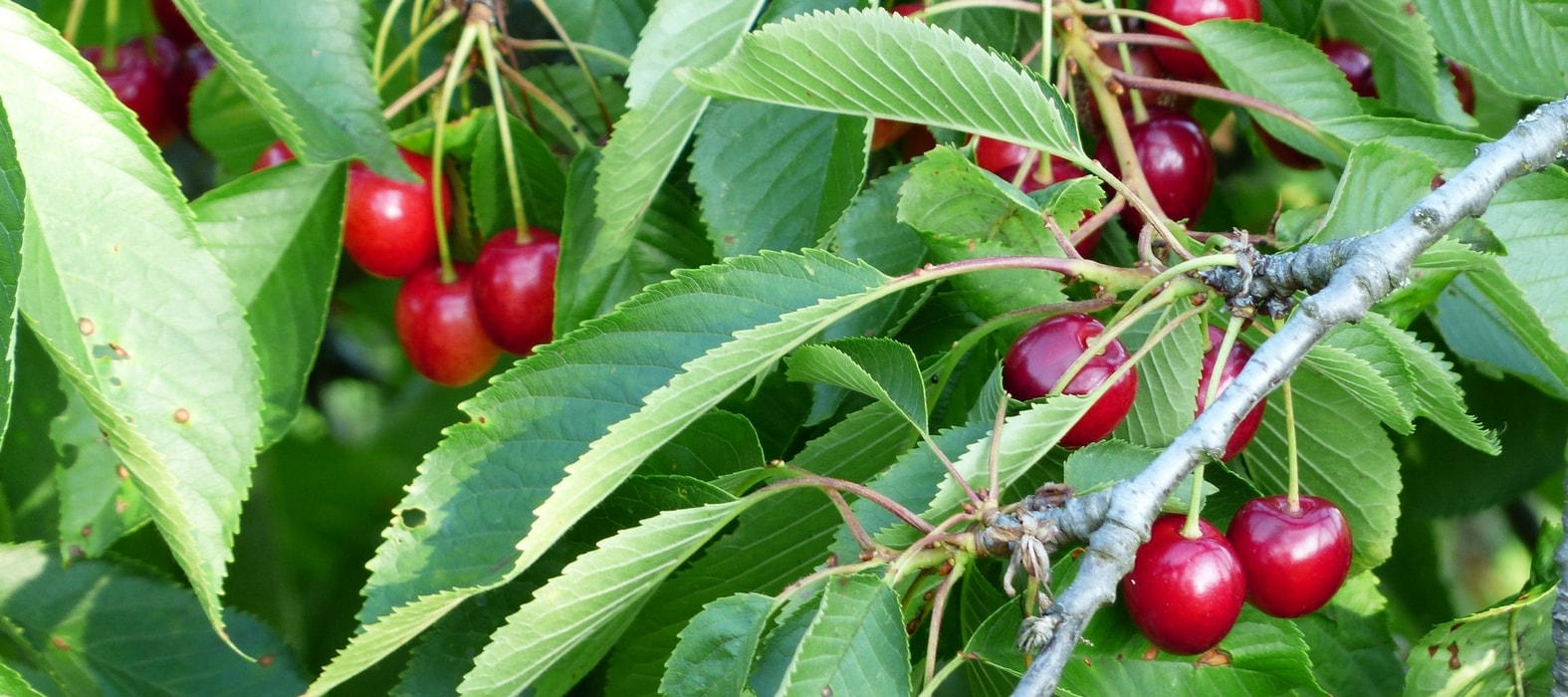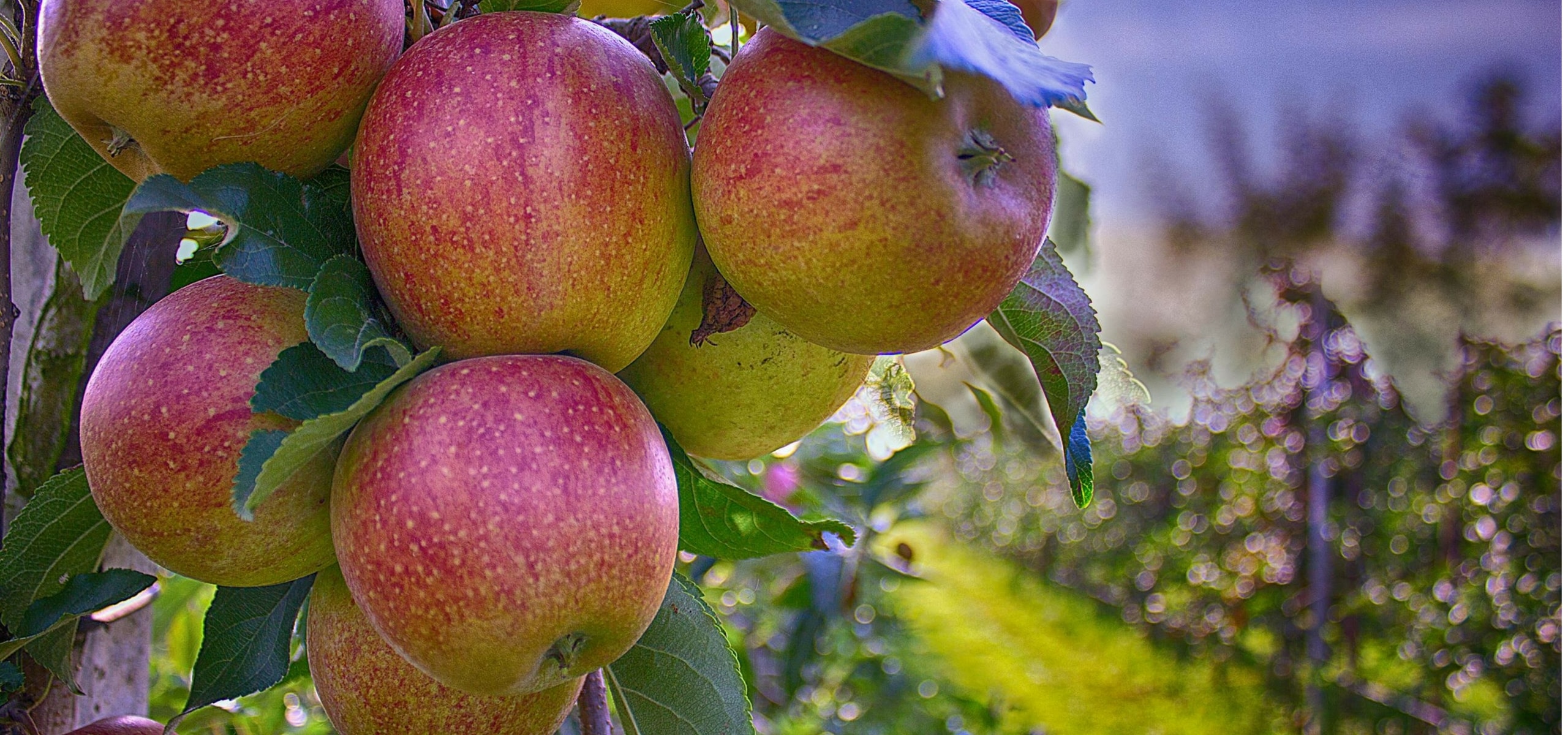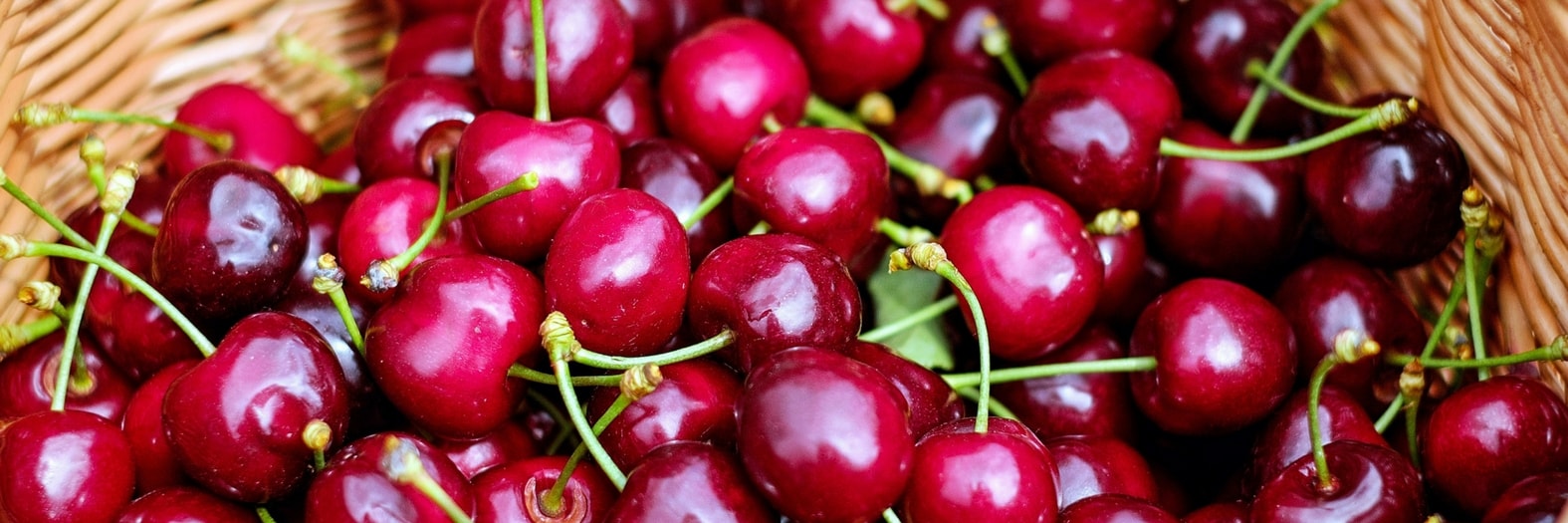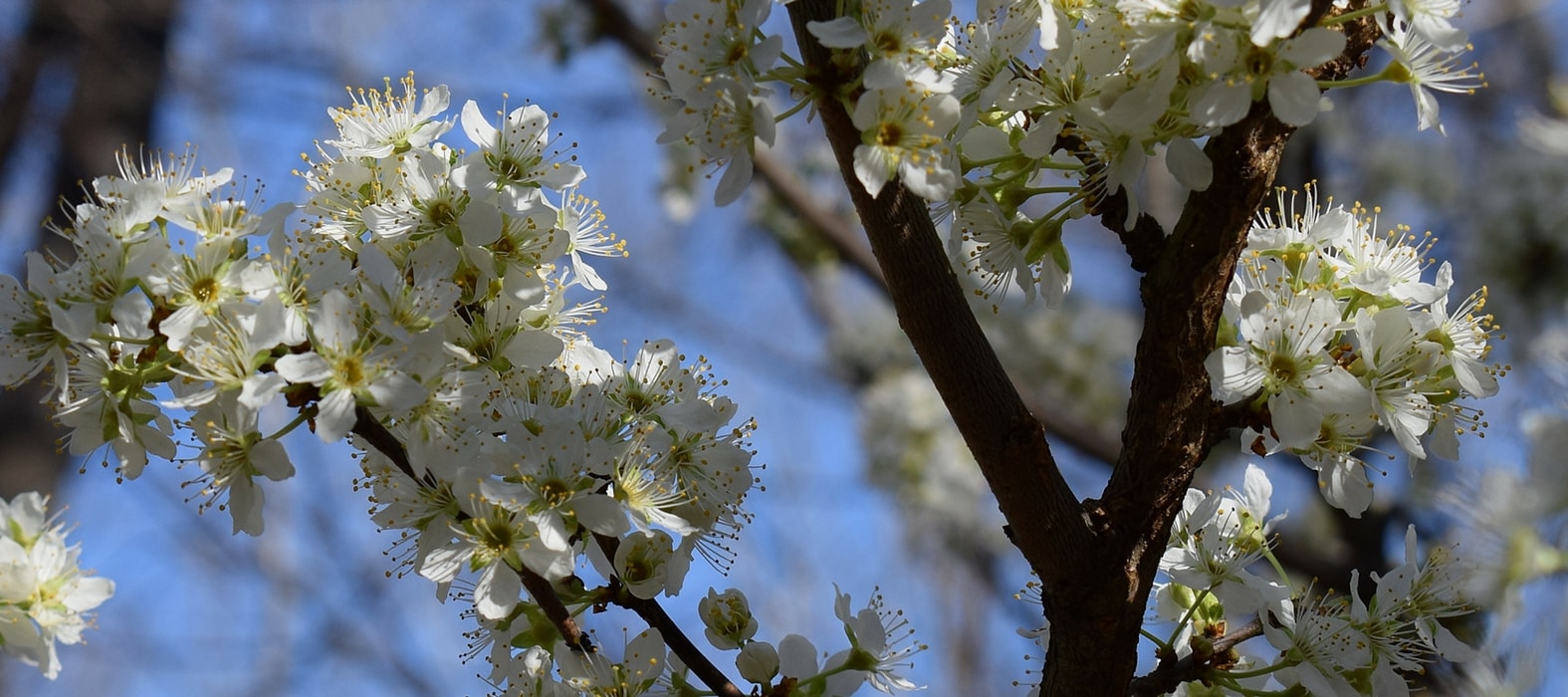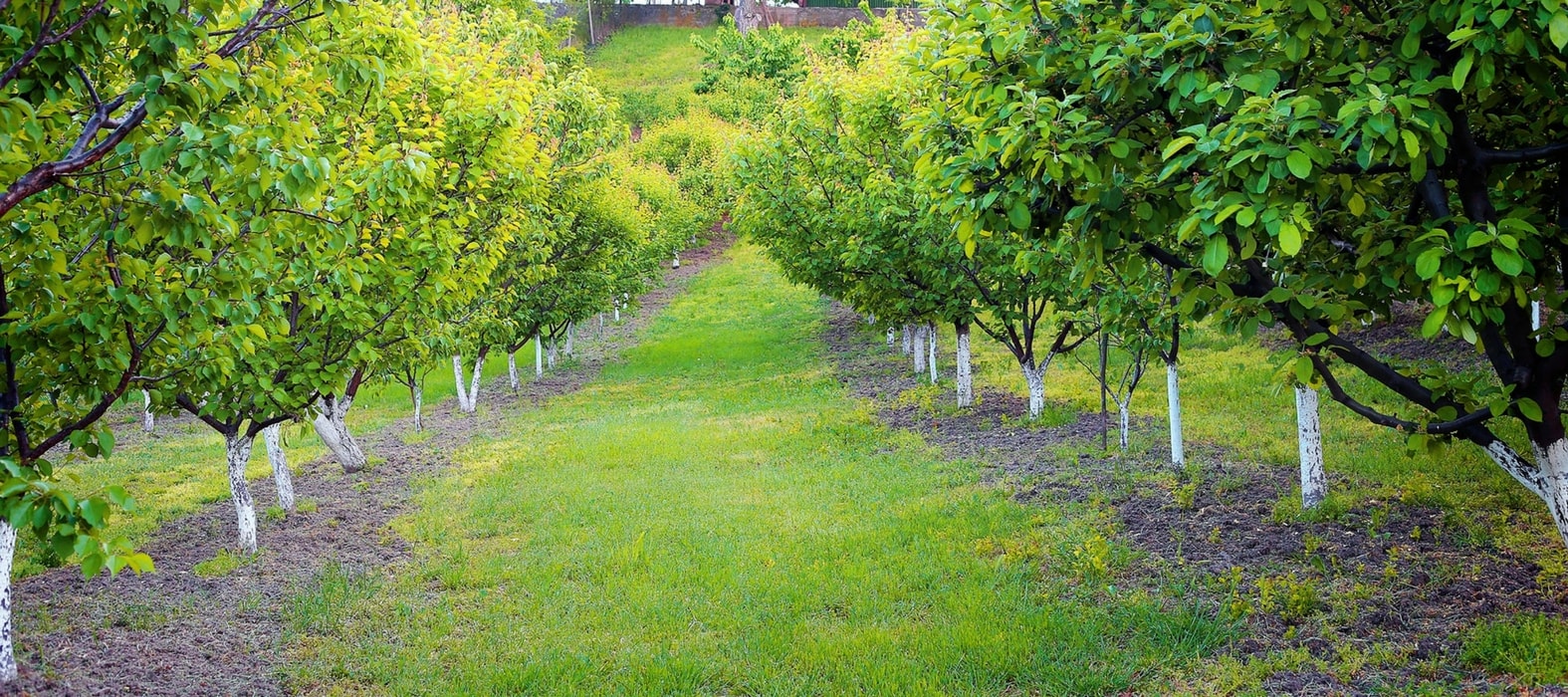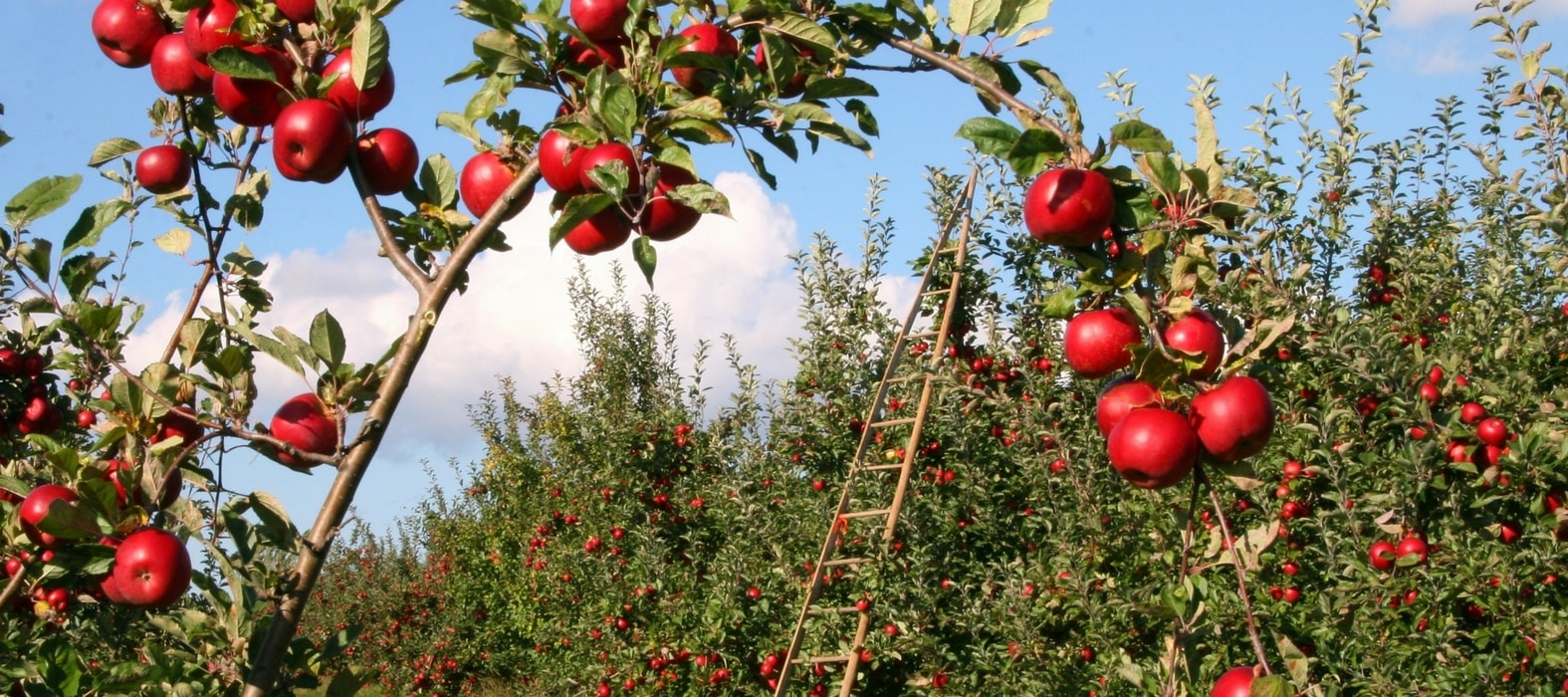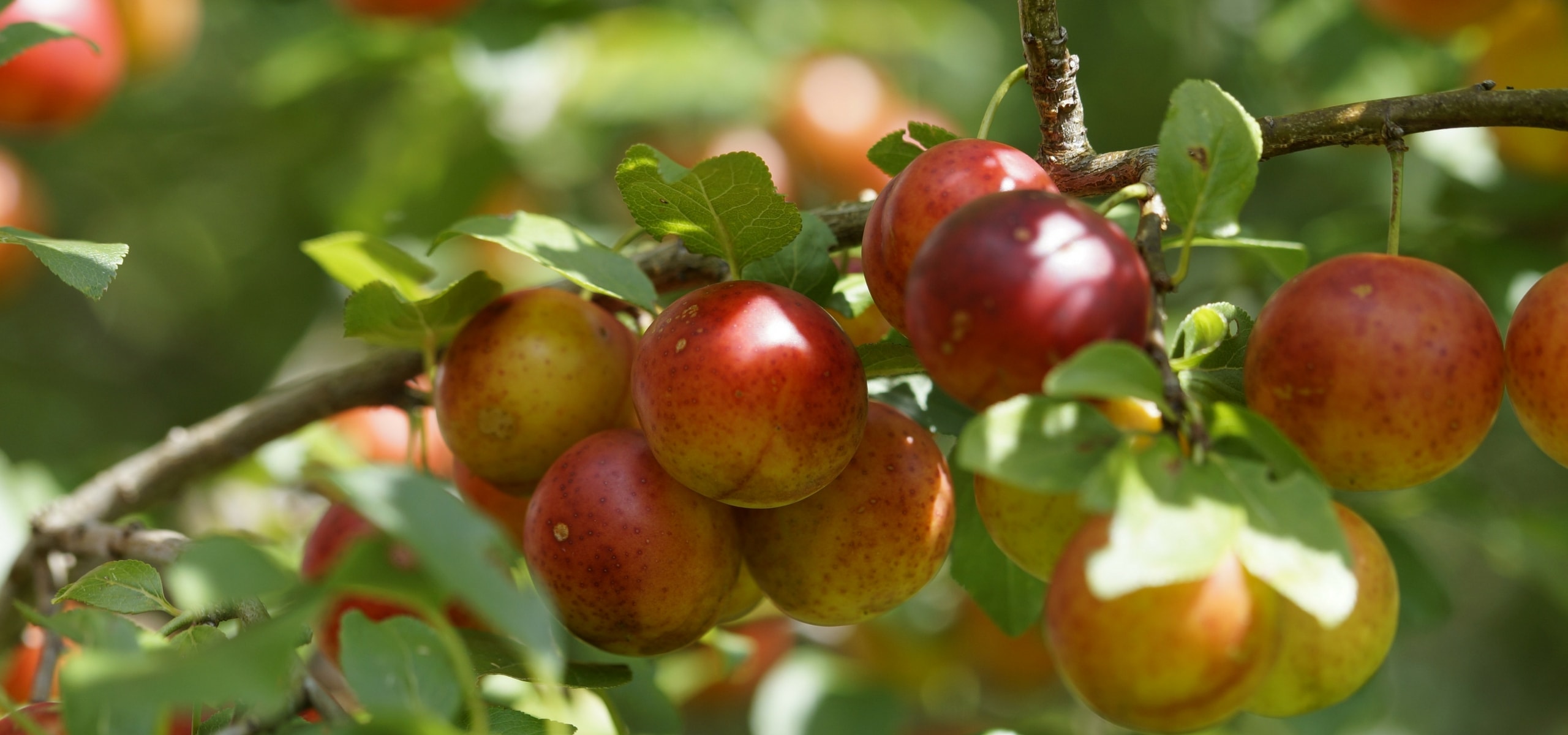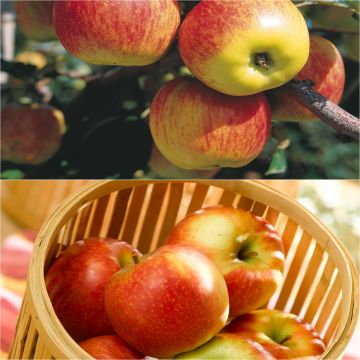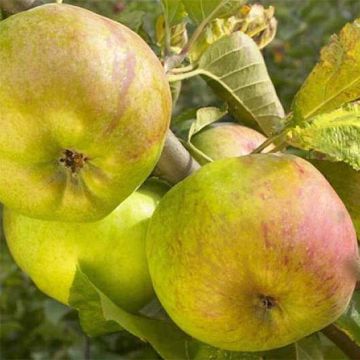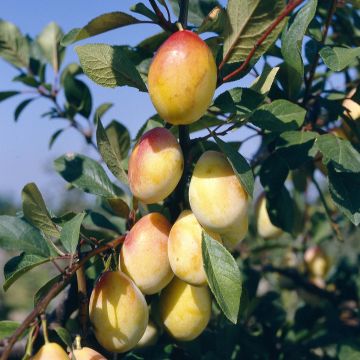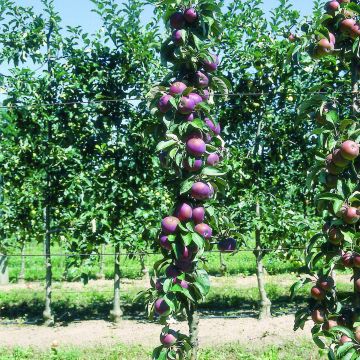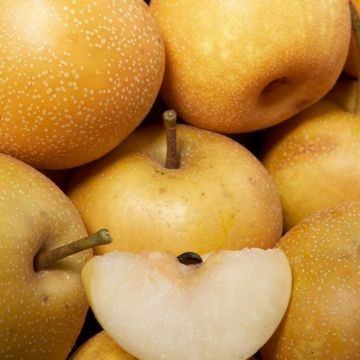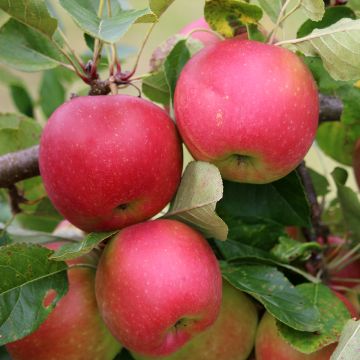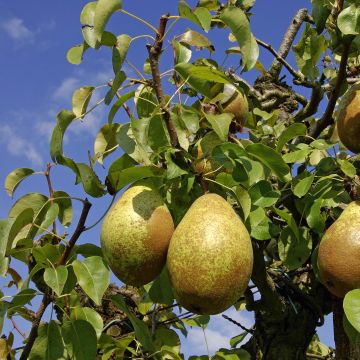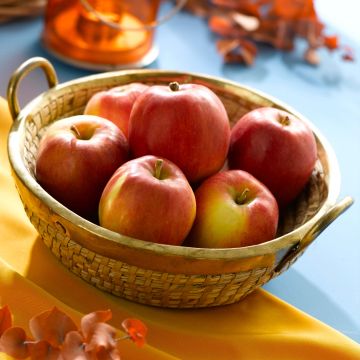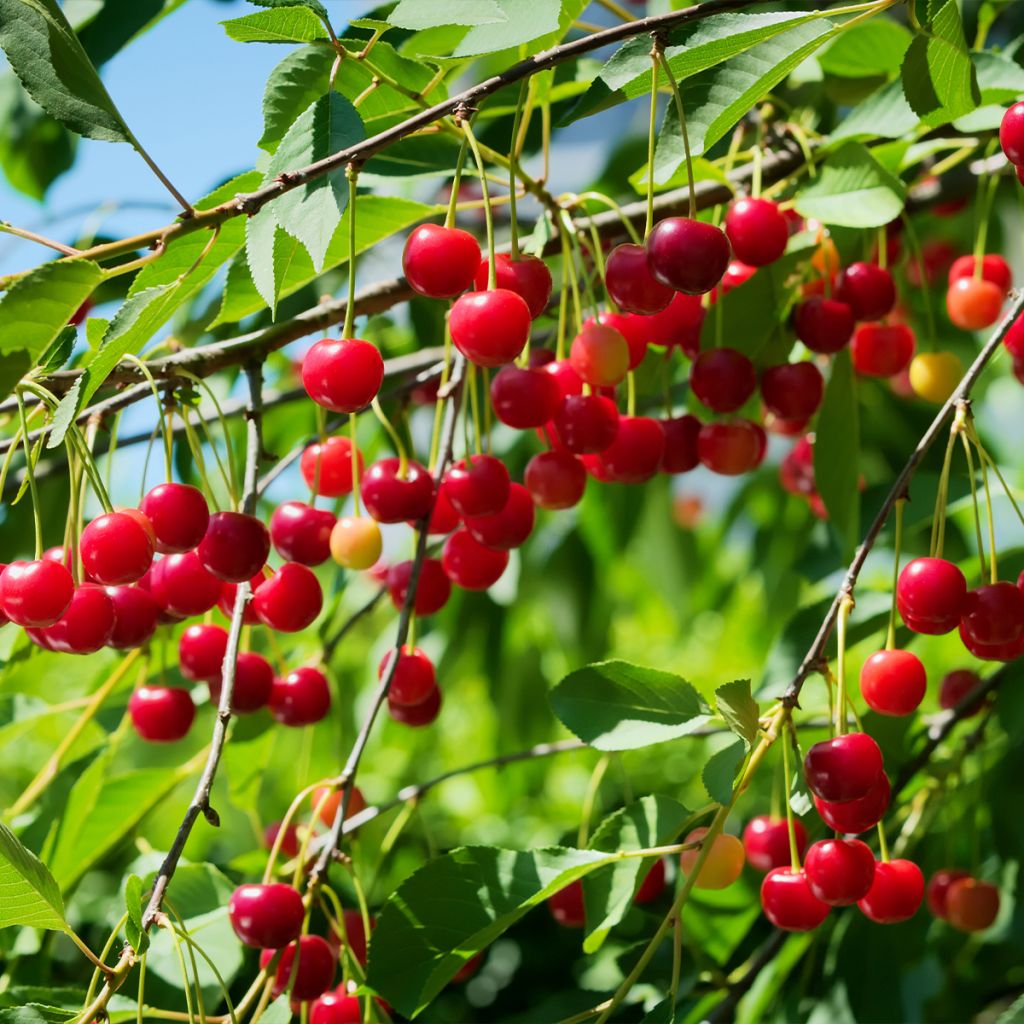

Prunus cerasus Cerise Allégria Delbard - Tart Cherry Tree
Prunus cerasus Cerise Allégria Delbard - Tart Cherry Tree
Prunus cerasus Cerise Allégria Delbard® delkarsun
Sour Cherry, Tart Cherry, Dwarf Cherry, Morello Cherry
Product missing from my order... Please check with your packer where it went wrong. Thank you.
Pedro, 05/03/2025
Special offer!
Receive a €20 voucher for any order over €90 (excluding delivery costs, credit notes, and plastic-free options)!
1- Add your favorite plants to your cart.
2- Once you have reached €90, confirm your order (you can even choose the delivery date!).
3- As soon as your order is shipped, you will receive an email containing your voucher code, valid for 3 months (90 days).
Your voucher is unique and can only be used once, for any order with a minimum value of €20, excluding delivery costs.
Can be combined with other current offers, non-divisible and non-refundable.
Home or relay delivery (depending on size and destination)
Schedule delivery date,
and select date in basket
This plant carries a 6 months recovery warranty
More information
We guarantee the quality of our plants for a full growing cycle, and will replace at our expense any plant that fails to recover under normal climatic and planting conditions.
Description
Prunus cerasus Allegria Delbard Delkarsun is a variety of cherry tree with red fruits, whose purple flesh is sweet and tart. Its late flowering exposes it less to the risk of frost, which is a definite advantage in many regions. The cherries are resistant to bursting and are harvested in July. The half-standard shape makes picking easier, but a ladder will still be needed as it is a fairly tall tree. Highly resistant to diseases and cold, self-fertile, this is a highly recommended fruit tree.
The sour cherry, in Latin Prunus cerasus (also known as the morello cherry), as well as the sweet cherry Prunus avium, are the two main species that have given rise to most of the sweet cherry trees cultivated in our gardens. They belong to the Rosaceae family, one of the most important under our latitudes, both for fruit and ornamental gardens, as well as for wild flora. The cherry tree is a medium-sized tree, reaching 5 to 10 metres (16 to 33 feet) in height at maturity. Its rounded habit provides a beautiful shaded space, very pleasant during the summer. Its alternate and dentate leaves are shiny, dark green, and then turn a pretty reddish colour in autumn before falling.
This 'Allegria' variety is a creation of the famous Georges Delbard nurseries, renowned for decades for their fruit trees and roses. This cherry tree is grafted as a half-standard, which allows picking the lower part of the tree from the ground. However, its adult dimensions (about 10 metres (33 feet) in all directions) will require the use of a large ladder or a ladder, as the birds will take care of the top! From late March to late April, it produces white flowers, which, after pollination by insects, will give beautiful red cherries in July, with purple flesh, both sweet and tart. These fruits are very resistant to bursting, which is a big advantage in case of bad weather. When ripe, they can stay on the tree for 2 to 3 weeks. This is a self-fertile variety that does not require pollination by another tree. Thanks to its late flowering, this cherry tree is particularly suitable for cold regions that experience late frosts.
This Allegria cherry tree can be planted on a lawn, at the back of a flower bed, or in an orchard. It is a variety full of advantages and therefore a very good choice for gardens large enough to accommodate it. It will be a good start to an orchard, along with a mirabelle plum tree.
Prunus cerasus Cerise Allégria Delbard - Tart Cherry Tree in pictures
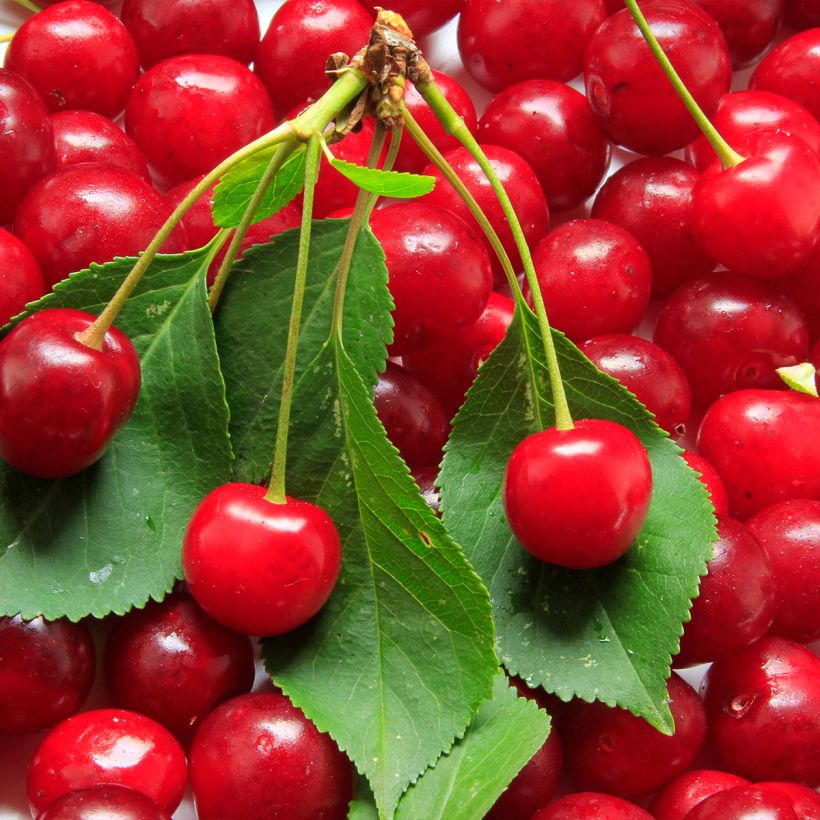

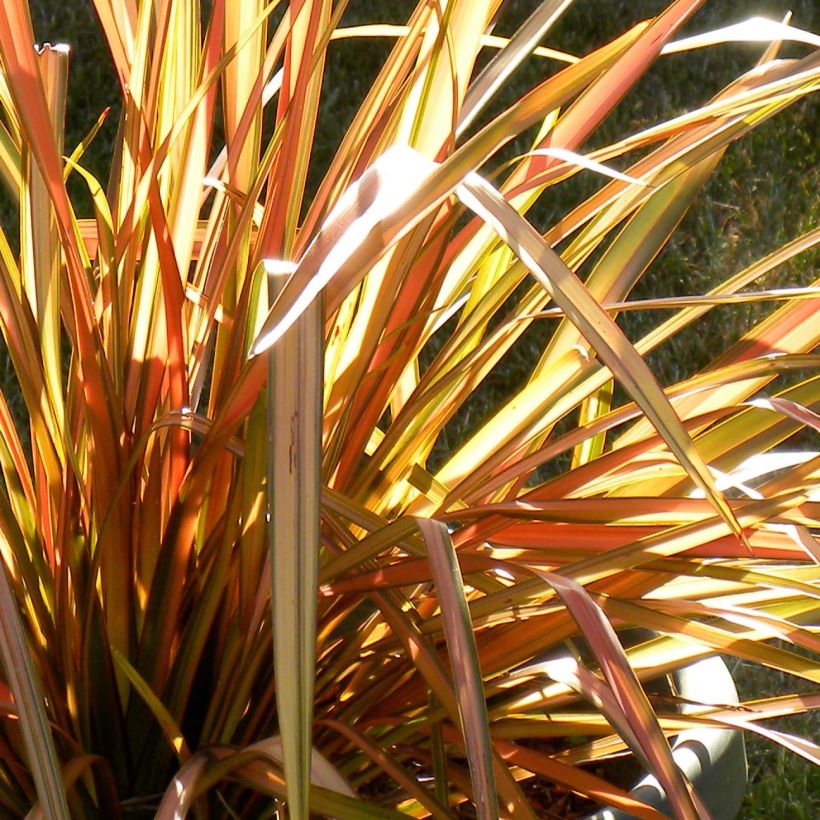

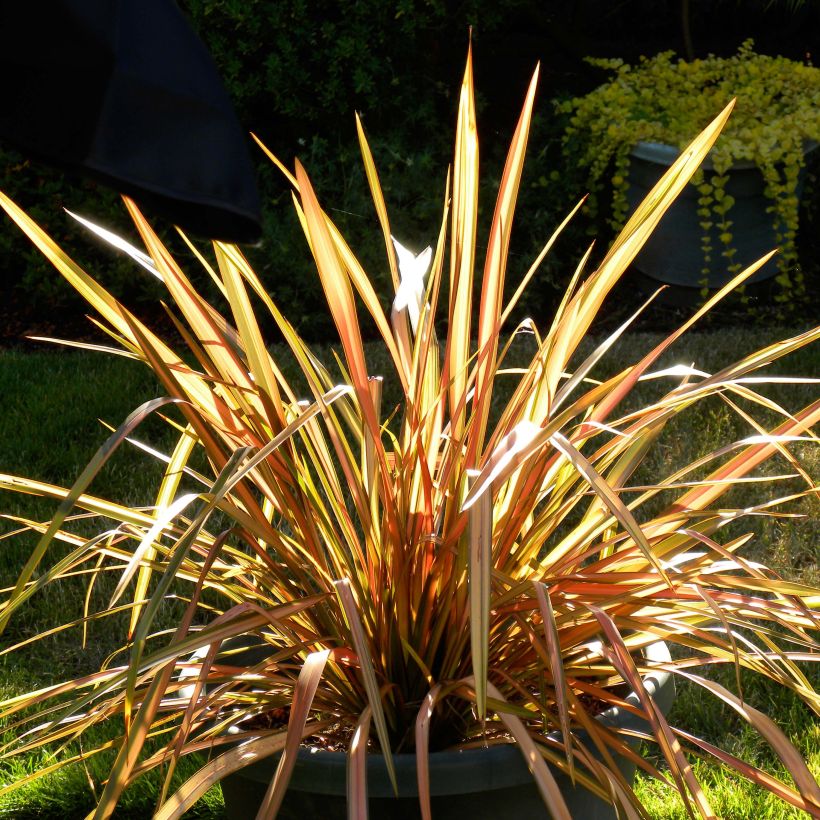

Plant habit
Fruit
Flowering
Foliage
Botanical data
Prunus
cerasus
Cerise Allégria Delbard® delkarsun
Rosaceae
Sour Cherry, Tart Cherry, Dwarf Cherry, Morello Cherry
Cultivar or hybrid
Other Cherry trees
View all →Planting and care
Easy to grow, the Cherry tree grows in all types of soil, acidic or chalky. It appreciates moist, light soils and fears heavy, clay soils. Choose a sunny exposure. In order to limit the risks of late frosts on the flowers, it is recommended to plant the Cherry tree in a sheltered position, facing west and protected from cold winds in regions that experience spring frosts. Planting is preferably done in autumn.
Loosen the soil deeply, remove stones and unwanted herbs. Add some sand to improve drainage. Dig a hole 4 to 5 times the volume of the root ball. Make sure to separate the subsoil from the topsoil. Mix bonemeal or well-rotted compost or potting compost with the subsoil and pour this mixture into the planting hole. Add a stake, then place the root ball, cover with the topsoil and firm it down. Water generously. Attach the stake to the plant, crossing the tie in the shape of an 8, without tightening it around the trunk to allow it to grow without being strangled (to be monitored over the years).
During cultivation, watering is not essential, but necessary in case of high temperatures, and in Mediterranean regions. Mulch at the base to keep it cool in summer. Protect your harvest by installing a bird net if necessary. In case of aphid attack, spray diluted black soap in water.
Planting period
Intended location
Care
Planting & care advice
-
, onOrder confirmed
Reply from on Promesse de fleurs
Similar products
Haven't found what you were looking for?
Hardiness is the lowest winter temperature a plant can endure without suffering serious damage or even dying. However, hardiness is affected by location (a sheltered area, such as a patio), protection (winter cover) and soil type (hardiness is improved by well-drained soil).

Photo Sharing Terms & Conditions
In order to encourage gardeners to interact and share their experiences, Promesse de fleurs offers various media enabling content to be uploaded onto its Site - in particular via the ‘Photo sharing’ module.
The User agrees to refrain from:
- Posting any content that is illegal, prejudicial, insulting, racist, inciteful to hatred, revisionist, contrary to public decency, that infringes on privacy or on the privacy rights of third parties, in particular the publicity rights of persons and goods, intellectual property rights, or the right to privacy.
- Submitting content on behalf of a third party;
- Impersonate the identity of a third party and/or publish any personal information about a third party;
In general, the User undertakes to refrain from any unethical behaviour.
All Content (in particular text, comments, files, images, photos, videos, creative works, etc.), which may be subject to property or intellectual property rights, image or other private rights, shall remain the property of the User, subject to the limited rights granted by the terms of the licence granted by Promesse de fleurs as stated below. Users are at liberty to publish or not to publish such Content on the Site, notably via the ‘Photo Sharing’ facility, and accept that this Content shall be made public and freely accessible, notably on the Internet.
Users further acknowledge, undertake to have ,and guarantee that they hold all necessary rights and permissions to publish such material on the Site, in particular with regard to the legislation in force pertaining to any privacy, property, intellectual property, image, or contractual rights, or rights of any other nature. By publishing such Content on the Site, Users acknowledge accepting full liability as publishers of the Content within the meaning of the law, and grant Promesse de fleurs, free of charge, an inclusive, worldwide licence for the said Content for the entire duration of its publication, including all reproduction, representation, up/downloading, displaying, performing, transmission, and storage rights.
Users also grant permission for their name to be linked to the Content and accept that this link may not always be made available.
By engaging in posting material, Users consent to their Content becoming automatically accessible on the Internet, in particular on other sites and/or blogs and/or web pages of the Promesse de fleurs site, including in particular social pages and the Promesse de fleurs catalogue.
Users may secure the removal of entrusted content free of charge by issuing a simple request via our contact form.
The flowering period indicated on our website applies to countries and regions located in USDA zone 8 (France, the United Kingdom, Ireland, the Netherlands, etc.)
It will vary according to where you live:
- In zones 9 to 10 (Italy, Spain, Greece, etc.), flowering will occur about 2 to 4 weeks earlier.
- In zones 6 to 7 (Germany, Poland, Slovenia, and lower mountainous regions), flowering will be delayed by 2 to 3 weeks.
- In zone 5 (Central Europe, Scandinavia), blooming will be delayed by 3 to 5 weeks.
In temperate climates, pruning of spring-flowering shrubs (forsythia, spireas, etc.) should be done just after flowering.
Pruning of summer-flowering shrubs (Indian Lilac, Perovskia, etc.) can be done in winter or spring.
In cold regions as well as with frost-sensitive plants, avoid pruning too early when severe frosts may still occur.
The planting period indicated on our website applies to countries and regions located in USDA zone 8 (France, United Kingdom, Ireland, Netherlands).
It will vary according to where you live:
- In Mediterranean zones (Marseille, Madrid, Milan, etc.), autumn and winter are the best planting periods.
- In continental zones (Strasbourg, Munich, Vienna, etc.), delay planting by 2 to 3 weeks in spring and bring it forward by 2 to 4 weeks in autumn.
- In mountainous regions (the Alps, Pyrenees, Carpathians, etc.), it is best to plant in late spring (May-June) or late summer (August-September).
The harvesting period indicated on our website applies to countries and regions in USDA zone 8 (France, England, Ireland, the Netherlands).
In colder areas (Scandinavia, Poland, Austria...) fruit and vegetable harvests are likely to be delayed by 3-4 weeks.
In warmer areas (Italy, Spain, Greece, etc.), harvesting will probably take place earlier, depending on weather conditions.
The sowing periods indicated on our website apply to countries and regions within USDA Zone 8 (France, UK, Ireland, Netherlands).
In colder areas (Scandinavia, Poland, Austria...), delay any outdoor sowing by 3-4 weeks, or sow under glass.
In warmer climes (Italy, Spain, Greece, etc.), bring outdoor sowing forward by a few weeks.






























